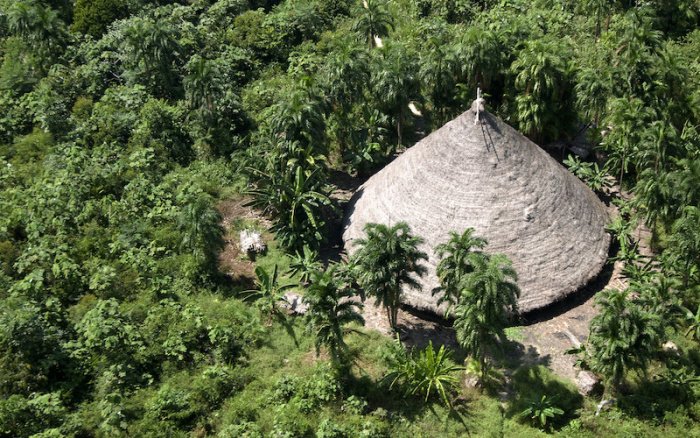Public Note #15 – Statement on COVID-19 and Indigenous peoples: the State’s responsibility
31 Mar 2020, 17:44
The Dom Paulo Evaristo Arns Commission for the Defense of Human Rights – the Arns Commission – hereby expresses its support for Indigenous peoples, its special concern for isolated or recently-contacted peoples, and reaffirms the State’s responsibility in realizing the fundamental rights of the Indigenous population in face of the COVID-19 pandemic.
The likely onset of the COVID-19 pandemic among Indigenous peoples requires urgent measures. It is apprehensive that the current government's policy has not shown itself to be up to the Nation’s mission to protect Indigenous peoples and territories. The Executive Branch's responsibility cannot be restricted only to fully regularized lands. It has been up to Federal Public Prosecutor’s Office to honor its constitutional role and insist on correcting these trends alongside the National Indigenous Foundation (Fundação Nacional do Índio – Funai, in Portuguese).
Several Indigenous peoples and their organizations, including the Articulation of Indigenous Peoples of Brazil (Articulação dos Povos Indígenas no Brasil – Apib, in Portuguese) have taken initiatives and signaled concrete measures that are under the responsibility of the Executive branch. State and health authorities must listen to these demands and work in collaboration with local leaders.
As virgin soil for new pathogens, we are experiencing an attenuated version of the catastrophe that has befallen the Indigenous peoples of the New World since the arrival of Europeans. “Little flus” that were deemed harmless and a policy of concentration of people managed to decimate entire populations. This is the risk uncontacted Indigenous peoples are facing, those who voluntarily quarantined themselves a long time ago, as we are doing now, to avoid disasters. These uncontacted peoples and those recently-contacted ones are the most vulnerable among the vulnerable.
To avoid possible extermination, it is essential to maintain the policy adopted by Funai in 1987, respecting the voluntary isolation of Indigenous peoples and protecting their territories. The removal of experienced members of Funai’s General Coordination for Isolated and Recently-Contacted Indigenous Peoples (Coordenação Geral de Povos Indígenas Isolados e Recente Contato da Funai – CGPIIRC, in Portuguese) causes concern. We reject the appointment to the head of the CGPIIRC of someone who, for ten years, was part of the North American organization New Tribes, whose mission is to contact and convert isolated peoples. The inadequacy of this appointment is undeniable.
Invasions of Indigenous lands, which have only increased, make it difficult to confront the pandemic. They demand greater surveillance of Indigenous territories and the removal of deed-falsifiers/land grabbers (“grileiros”), loggers, and gold prospectors from these lands. Evictions must be suspended in cases of repossession of territories of traditional occupation.
Experts on Indigenous health from the Brazilian Association of Collective Health (Associação Brasileira de Saúde Coletiva – Abrasco, in Portuguese) have made several recommendations: the authorities and Indigenous communities should limit the entry into and exit from Indigenous Lands as much as possible, preventing the entry of infected people through laboratory tests. They have also recommended that, in urban centers, untested Indigenous people without symptoms should isolate for 7 days, or for 14 days in the case of Indigenous people with suspected or confirmed disease, before returning to the areas. They have also recommended that a way must be found, with local, national, or international strategies, to obtain rapid tests, with priority for the Special Indigenous Sanitary Districts (Distritos Sanitários Especiais Indígenas – DSEI, in Portuguese), which have more logistical difficulties of access.
Abrasco also recommends the training of multidisciplinary teams for surveillance and monitoring of Influenza Syndrome and Severe Acute Respiratory Syndrome (SARS), with home visits and testing; the dissemination of qualified information; home isolation; avoiding agglomerations; and establishing control and prevention measures in health units. The importance of anticipating influenza vaccination is also noteworthy.
The Special Secretariat for Indigenous Health (Secretaria Especial de Saúde Indígena – Sesai, in Portuguese), an instance of the federal-level Executive branch and part of the Unified Healthcare System (Sistema Único de Saúde – SUS, in Portuguese), is the one responsible for taking measures and acting. Sesai, the Special Indigenous Health Districts (DSEIs), and the Indigenous Health Houses (Casas de Saúde Indígena – Casai, in Portuguese) must be strengthened with an additional budget allocation because those are the places where sick Indigenous people and their families are concentrated in the cities and which must be adapted to the new situation.
In order to guarantee subsistence in quarantine situations, it is necessary to provide supplies of basic food baskets and redirect school meals to be shared within the community, as well as distribute soap, alcohol gel, personal protective equipment (PPE) for patients, accompanying persons, and health professionals, in addition to providing access to quality water. The water, nowadays, is frequently polluted by mercury in several rivers of the Amazon.
Urgent attention must be given to Indigenous villages close to large urban centers in the South, Southeast, and Northeast regions, where community transmission already occurs. It is essential to coordinate with leaders, Indigenous organizations, and Indigenous health advisors for the implementation of COVID-19 control and surveillance actions.
In conclusion, we express our solidarity with Indigenous peoples, as well as the professionals, leaders, and institutions that work to protect them. And we encourage the institutions of the Justice System to take the necessary measures to defend Indigenous peoples.